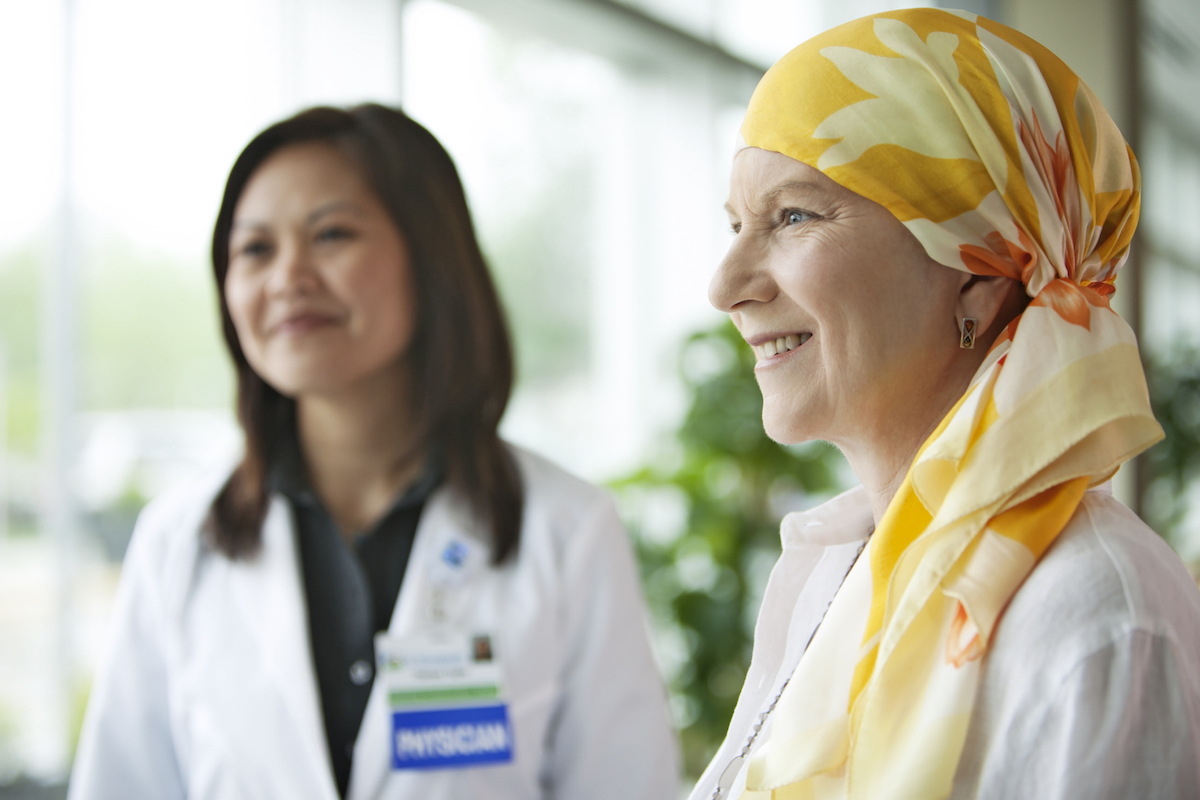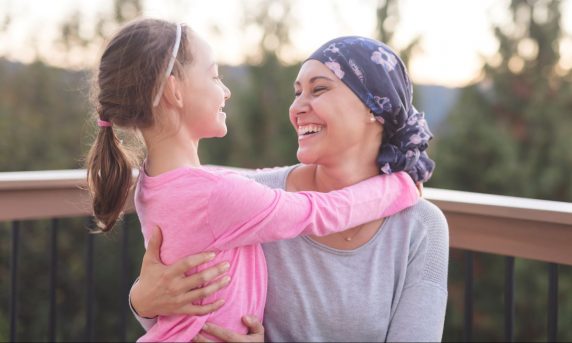Caitlin McPhelimy, LPC
Program Manager, Cancer Support Services
Hartford HealthCare Cancer Institute
“How are you doing?”
When we are asked this question, our automatic response is: “I’m good. How are you?”
And the conversation continues to another topic.
At the Hartford Healthcare Cancer Institute, we want to know, “How are you REALLY doing?”
Questions that arise when meeting with your oncologist focus on symptom management, side effects and physical well-being. As important as these answers are, we want to know more. We want to care for the whole person, body and mind.
A cancer diagnosis is traumatic. It doesn’t matter the type, the stage or the treatment plan.
Hearing the words “You have cancer” rattles you to the core.
Significant research over decades confirms this. Upward of 50 percent of people diagnosed with cancer experience notable levels of distress at some point in their continuum of care. A large majority of those people experiencing difficulty coping with health-related stressors are often being “missed.” Their needs are under-addressed due to a lack of direct communication.
“How are you REALLY doing . . . body AND mind?”
The National Cancer Institute, with the focus of the Institute of Medicine (now the National Academy of Medicine), highlighted the importance of assessing and addressing the emotional impacts on a cancer diagnosis in a 2008 report. “Attending to psychosocial needs should be an integral part of quality cancer care,” the report said. “All components of the health care system that are involved in cancer care should explicitly incorporate attention to psychosocial needs.”
The Hartford Healthcare Cancer Institute prioritizes support for the emotional impact of a cancer diagnosis as soon as possible in the treatment plan.
A new questionnaire called the “Wellness Assessment,” a brief screener for anxiety and depression, will be used by all HHC medical oncology offices, infusion centers and radiation oncology departments. The goal is for patients to be screened at pivotal points in their cancer experience to open up conversations with their treatment team and create more opportunities for whole-person centered care.
There are a number of benefits to this initiative for patients, families and providers.
The Wellness Assessment will help providers proactively identify distressed patients and connect them with the appropriate resources. Knowing that screening is a Cancer Institute priority and incorporating the tool into each practice’s daily routine puts psychosocial support on the radar of the entire team.
It increases the likelihood of automatically incorporating open discussion about emotional well-being in the medical appointments. A brief check-in alone is helpful! Research has shown that oncologists who ask about the emotional impact of cancer have patients reporting that they feel more supported and satisfied with their cancer care.
Beyond the immediate discussion, it will keep psychosocial needs on the treatment plan. Referrals will be made earlier and more efficiently to our supportive care resources in the areas of social work, nurse navigation and integrative medicine.
The standardized screening will also improve the patient experience by delivering education about available supportive care services as early as possible.
And implementing an effective distress screening tool will help the Cancer Institute maintain the highest national standards with accreditation through the American College of Surgeons Commission on Cancer, which requires programs to actively incorporate psychosocial support into the treatment planning for all cancer patients.
Finally, by implementing a streamlined tool across all Cancer Institute locations, from Fairfield County to the Quiet Corner in Windham County and every place in between, we will be able to collect data about the range of emotional needs of our patients to create more robust location-specific and/or statewide services to improve the quality of life, mind and body, for all that entrust us with their care.
So, “How are you REALLY doing?” We hope you are well, body and mind, and enjoying the beautiful start to our summer months!


